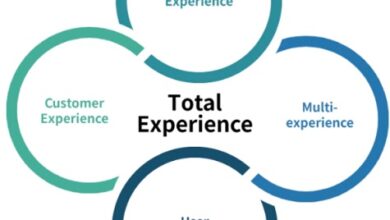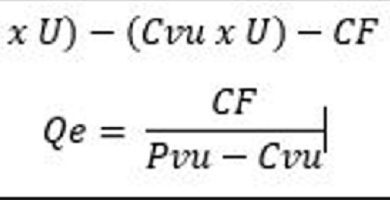What is coaching in the workplace and How can Profiler help
Coaching in the workplace
Did you know that the coach can act in different market niches ? Increasingly on the rise, this methodology has been used to help people in different areas of life, promoting self-knowledge and personal and professional development. In this article we will provide you the coaching in the workplace.
In this post, we explain better which types of coaching are best known and which audience each of them is aimed at. Do you want to know your possibilities to open the range? So, read on.
What is and what does a coach do?
Coach is who works in personal, professional and business development , applying the Coaching methodology . Furthermore, it aims to help its clients achieve goals in a short period of time.
Contrary to what some people might think, the coach is not a therapist . That’s because its focus is not on helping the client deal with past problems specifically, but on helping them to understand their limitations and reach their goals through personal development.
In this sense, the idea behind the coaching methodology is that the individual eliminates their sabotaging beliefs and strengthens their mindset , building new habits and leaving the current state to the desired one in a short period.
But to act as a coach, the professional must seek training courses and specializations . Only with this prior preparation, he will be able to ask questions, questions and provocations that will make customers see their own potential and begin a journey of development.
In conclusion, this type of professional will not offer ready-made answers, but will use techniques to help individuals get out of their comfort zone and seek self-knowledge.
Types of coaching
Coaching is a methodology aimed at development, therefore, it can be applied in different areas of life and can be divided into categories. Thus, there are two main areas of coaching, business and executive and life coaching or life coaching.
Within each of these areas, there are subcategories that work on specific development niches. Despite the division, it is important to keep in mind that many personal and professional aspects end up overlapping , and one type of coaching can end up helping in other processes in the client’s life.
1- Business and executive coaching
Business or executive coaching works in important niches for individual and collective professional empowerment . Thus, it encourages a process of recognition, psychological strengthening and development of resources and instruments that will make the professional stand out in the market.
In this context, there are some coaching niches within the category.
a-leadership coaching
This type of coaching is aimed at team leaders, who are managers, directors and even teachers . Its objective is to help professionals develop and acquire behavioral skills that can help inspire and motivate the team , ensuring that the team’s productivity remains high.
In this way, the leadership coach acts as a partner to, together with the professional, discover behaviors that may be limiting the team’s action and create plans and strategies to change these behaviors.
b-sales coaching
Sales coaching is a different method than traditional sales training . This is because, in training, the professional learns practical techniques, such as negotiation and customer loyalty.
Coaching focuses on self-knowledge and the development of behavioral skills to help with sales. Thus, the professional develops not only the technical part, but also the soft skills needed to improve their approach and results, acting to change their internal posture.
c-executive coaching
Executive coaching is aimed at entrepreneurs , CEOs and professionals responsible for the strategic management of an organization.
Still, it aims to develop these professionals so that they present a high performance in their functions , improving business results. Thus, the coach seeks to awaken important skills, such as leadership and self-confidence, in addition to aligning the values of the executive and the company.
d-business coaching
If executive coaching focuses on the professional, business coaching is focused on the company , encompassing entrepreneurs and the team as a whole. Thus, this type of development includes a diagnosis of the current situation of the business and the performance of the team.
After the diagnosis, the coach seeks to assist in the proper organization of the team’s processes and interactions so that the company can achieve the defined goals and results .
2- Life Coaching
In addition to coaching focused on the professional area, there are also services aimed at developing people, even if they are not in the job market. Thus, the coach can help their clients in different areas of their daily lives, promoting a true transformation of life and helping to make their dreams come true .
Within this category, it is possible to find several coaching niches, as we will see below.
a-vocational coaching
This coaching niche is aimed at young people and students who still have doubts about the professional path they want to follow. In addition, it can be a good tool for professionals looking for a replacement in the market or even a career change.
The process consists of a reflection on the skills and competences in addition to the professional experience and vocations that the client has. Thus, the coach helps the individual to find their vocations and develop an action plan to reach goals and trace a path in career development.
b-financial coaching
The financial coach is the professional who helps his clients manage their finances, improving their financial health and helping them to fulfill their dreams .
But your job is not that of a financial advisor, but that of an expert advisor who helps with planning finances and identifying issues that hinder financial health. Therefore, it can help the client to pay off debts and better manage their expenses and income.
c-communication coaching
This type of coaching is aimed at people who are insecure or who have difficulty communicating and speaking in public . The purpose of the process is to improve this competency and develop more self-confidence.
d-relationship coaching
Relationship coaching is a process that helps individuals to improve their human relationships , especially with regard to affective life.
The sessions can take place individually or as a couple, and in them are addressed the client’s needs in general and action plans so that he can improve understanding and union, making relationships more balanced and harmonious.
e-weight loss coaching
Weight gain can often be related to habits, behaviors and even emotional needs . Thus, the weight loss coach is the professional who helps the client to overcome obstacles and change ingrained habits, enabling, in addition to weight loss, a healthier life.
How can Profiler help with coaching work?
The behavioral management is a feature important that can help the work of coaches. This is because, using the Profiler mapping tool , the coach is able to identify behavioral aspects of their client that influence their career and personal life.
In this way, the professional helps the client in self-knowledge and has more information to support his development plan , considering the individual’s characteristics and skills.
Despite being robust, the tool is quite simple and your questionnaire can be answered in 5 minutes . At the end of the test, a report with more than 50 pieces of information is generated, including the behavioral profile in which the individual is most prevalent.
Furthermore, the tool uses four behavioral profiles and each one has different characteristics. Check out!
1-communicator profile
These are extroverted, communicative, active people, who love to socialize and adapt easily. In addition, they are closely linked to innovation and creativity, yet they are very optimistic.
However, they find it difficult to say no , which is why they end up not being able to fulfill all the promised tasks, especially when they are in a pressured environment.
2-Executor Profile
Executors are driven by results and speed , so they are very competitive, love challenges and like to take risks. This is a more dominant profile and they tend to assume group responsibility. Because they are very process-bound, they end up neglecting relationships, which can lead to communication problems.
3-planner profile
Here, we have people who value linearity , balance and harmony. Thus, they are very calm, self-controlled and excellent listeners. Therefore, they tend to act more conservatively and are afraid to take risks .
4-analyst profile
These are focused, studious people who are very concerned about the quality of processes . Because of this concern, analysts always try to learn more in order to seek the best. Still, they are quite perfectionists, so they end up being very demanding with themselves and with others.
In conclusion, the coach is a professional who works in personal and professional development, helping his clients in self-knowledge and creating action plans for change. As we have seen, there are different types of coaching and each one of them focuses on solving different problems. For all types, however, the professional can rely on the Profiler tool.




